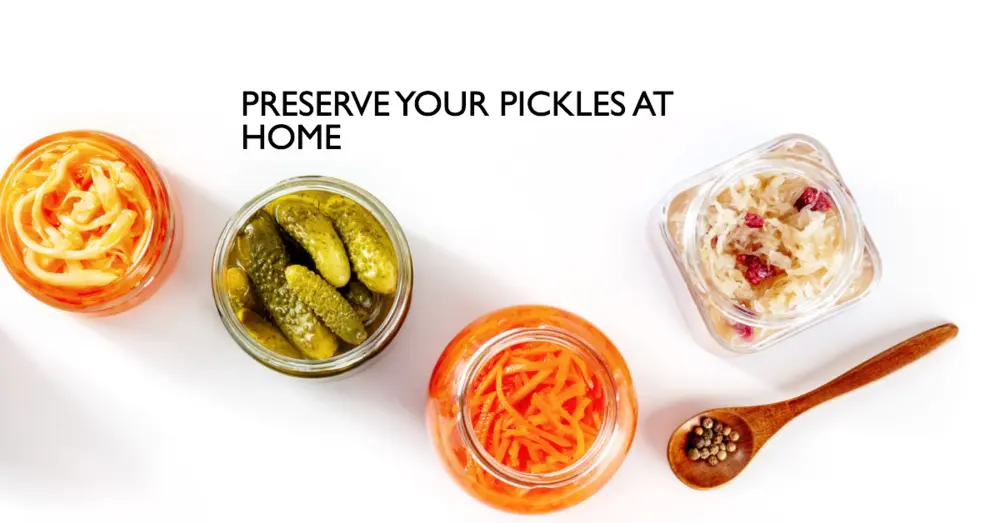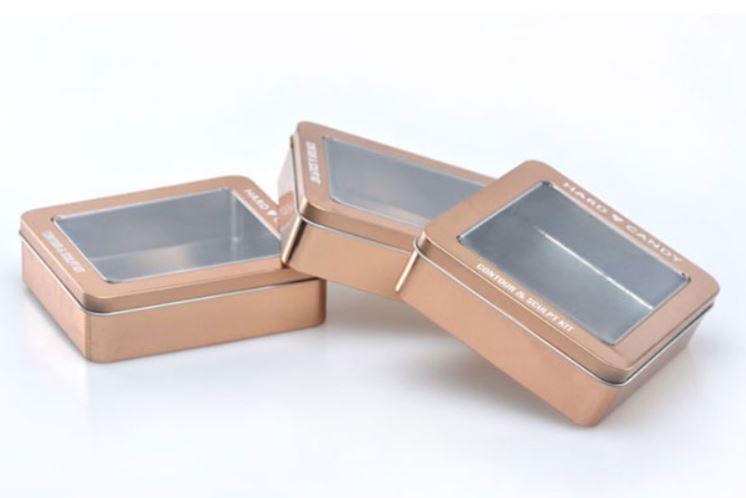Top 10 Tips For Storing Pickles At Home
Storing pickles properly ensures their flavor and safety over a long period. Planning to buy pickles online? Check these tips to store for a longer time –
Use Sterilized Jars
Sterilize jars and lids by boiling them in water for 10 minutes.
This prevents contamination and extends shelf life.
Boil the jars and lids in water for 10 minutes to kill any bacteria or mold.
This ensures that your pickles stay fresh and safe to eat.
Using clean, sterilized jars prevents contamination, which can spoil the pickles.
Always let the jars cool before adding pickles to avoid cracking.
Seal Properly
Ensure lids are sealed tightly to prevent air from entering.
Use canning jars with new lids and follow proper canning techniques.
Ensure the lids on your jars are tightly closed to keep air out.
Air can make pickles spoil faster.
Use special canning jars with new lids, as old lids might not seal properly.
When sealing the jars, follow proper canning steps to create a vacuum seal.
This helps keep your pickles fresh and safe to eat for a longer time.
Store in a Cool, Dark Place
Keep jars in a cool, dark place like a pantry or cellar.
Avoid exposure to sunlight and heat, which can degrade the quality.
Store your pickles in a cool, dark place, such as a pantry or cellar.
Avoid putting them in areas exposed to sunlight or heat, like near a stove or window.
Light and heat can break down the pickles, making them spoil faster.
Keeping them cool and dark helps maintain their flavor and freshness for a longer time.
Use the Right Vinegar
Use vinegar with at least 5% acidity to ensure preservation.
Lower acidity may not effectively prevent spoilage.
This level of acidity is necessary to kill harmful bacteria and ensure the pickles stay safe to eat over time.
Lower acidity vinegar might not be strong enough to preserve the pickles properly, leading to spoilage.
Always check the label on your vinegar to confirm it has the right acidity.
Check Brine Levels
Ensure pickles are fully submerged in brine.
Top up with more brine if necessary to prevent spoilage.
Make sure the pickles are completely covered by the salty water, called brine.
If the pickles stick out above the brine, they can spoil more quickly.
To prevent this, add more brine if needed so that the pickles stay fully submerged.
This keeps them fresh and safe to eat for a longer time.
Avoid Metal Contact
Use plastic or wooden utensils to avoid contact between metal and the pickles, which can lead to a metallic taste and spoilage.
Avoid using metal utensils when handling pickles because metal can react with the acidic brine, causing a metallic taste and possible spoilage.
Instead, use plastic or wooden utensils. This helps keep the pickles fresh and delicious.
Metal can also cause discoloration and affect the quality of your pickles.
It’s best to stick with non-metal tools for preserving their taste and safety.
Refrigerate After Opening
Once a jar is opened, store it in the refrigerator to maintain quality and prevent mold or bacterial growth.
After you open a jar of pickles, keep it in the refrigerator.
The cold temperature slows down the growth of bacteria and mold, helping the pickles stay fresh and safe to eat.
Always make sure the jar is tightly closed after each use to maintain their flavor and crunchiness.
This way, your pickles will last longer and taste better.
Use Fresh Ingredients
Start with fresh vegetables and high-quality spices.
Freshness at the start helps in maintaining longer shelf life.
Fresh ingredients ensure the pickles taste better and last longer.
Old or spoiled ingredients can make the pickles go bad faster and might not be safe to eat.
Always choose the best and freshest items to start with for the best results in your pickling.
You can buy spices online too.
Monitor for Spoilage
Regularly check jars for signs of spoilage, such as bulging lids, off smells, or moulds.
Discard any jars that show these signs.
Look for lids that are bulging, which can mean gas buildup inside.
Smell the pickles; if they have a bad odour, they might be spoiled.
Also, check for mould growing on the surface or inside the jar.
If you see any of these signs, throw the pickles away to avoid eating spoiled food.
Label and Date
Label each jar with the date of preparation.
Labelling the jars helps you know how long they’ve been stored and reminds you to use the older pickles first.
It is important to labelling jars with the date of making pickles.
This helps track how long they’ve been stored and reminds you to use older pickles first.
Simply write the date you made them on the jar with a marker or label.






